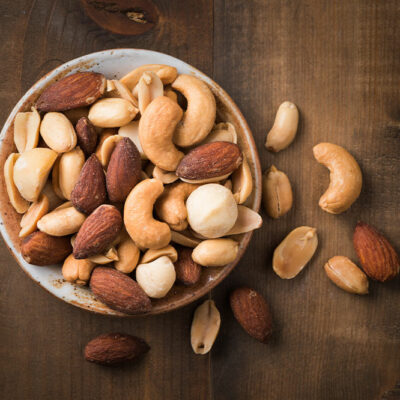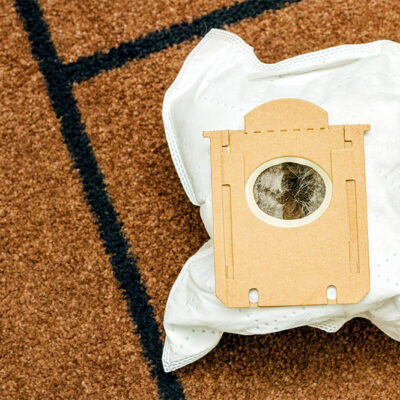4 useful tips for managing migraines

Migraine is a prevalent health condition in which a person experiences severe headaches, usually on one side of the head. There may also be other symptoms like sensitivity to light, tiredness, and nausea, which can last a few hours to two days. The ailment is triggered due to stress, certain foods, and other factors. While there is no cure for migraines, the following tips can help manage the symptoms effectively:
Use the correct treatment options
There are several treatments for migraines, but it is essential to choose the correct one after consulting a doctor. The popular options include:
Nurtec ODT
Nurtec ODT is an oral treatment that can help alleviate symptoms like headaches, pain, nausea, and sensitivity to light in adults. One can use Nurtec ODT on alternate days or as the doctor recommends. Its side effects include allergic reactions, trouble breathing, and rash.
UBRELVY
It is a fast-acting treatment option that blocks a specific protein in the body known to induce migraine attacks. One can consult a doctor to determine the dosage according to their condition. The most common side effects of UBRELVY are nausea and sleepiness.
Excedrin
Excedrin is suitable for temporary relief from migraine headaches. It can also treat aches caused by other factors, such as arthritis and toothaches. The treatment has a combination of compounds that work to relieve the symptoms. The side effects include skin reactions and liver damage.
QULIPTA
QULIPTA is recommended for patients with more frequent migraine episodes. The treatment helps reduce the frequency of migraines by blocking a particular protein that triggers them. Its most common side effects are fatigue, constipation, and nausea.
Follow a healthy meal plan
Certain foods help alleviate the symptoms, while others aggravate them. So patients must choose wisely. The best foods are:
Walnuts
Studies have shown that migraine patients usually have low magnesium levels, a nutrient that can relieve pain. Being high in magnesium, walnuts are a superfood for this health condition. Other nut varieties like Brazil nuts, almonds, cashews, and peanuts are also beneficial.
Sesame seeds
They are rich in essential nutrients like omega-3 fatty acids and magnesium that help prevent migraines. Besides sesame seeds, one can opt for pumpkin, poppy, and chia seeds as these have similar benefits.
Bananas
Bananas contain both magnesium and potassium that help alleviate the pain associated with the condition. If bananas are not a favorite, one can opt for watermelon. Its high water content can prevent dehydration, a popular migraine cause.
Natural sweeteners
Processed white sugar has low nutritional value, and it can lead to several health conditions, including migraines. To lower the risk, one can replace refined sugar with natural sweeteners like maple syrup and vanilla extract.
The following foods can have the opposite effect, triggering migraines instead:
Bacon
Cured meats like bacon have nitrates: additives to preserve food and prevent bacteria formation. Nitrates also give the meat a pink color. However, they can trigger headaches and are best avoided. Sausage, hot dogs, and deli meats are other examples of cured meats.
Aged cheese
Aged cheese contains a compound that can lead to severe headaches. The longer the cheese ages, the more the amount of this harmful compound. It is also advisable to avoid cheddar, Swiss, and blue cheese.
Monosodium glutamate (MSG)
MSG is a substance used to enhance the flavor of food. Some studies suggest that individuals with migraines may be sensitive to it, so MSG can act as a trigger for them. It is commonly found in fast food, frozen meals, and instant noodles.
Processed foods
Preservatives and additives in processed foods like cakes, biscuits, snacks, and ready-to-eat meals may spark a migraine attack. Even those without the condition should avoid such foods as they have high sodium, sugar, and fat levels.
Make the correct lifestyle adjustments
A few lifestyle changes and positive habits help manage the condition better. These include:
Managing stress
Stress is among the leading causes of migraine headaches, but it can be managed effectively. Many individuals prefer yoga as it helps relax the mind and improves sleep quality. Getting a body massage is also great for relieving pain and stress.
Drinking enough water
Since dehydration is a trigger of the condition, drinking water is essential. Besides water, one can have fresh fruit juices, coconut water, and herbal teas to stay hydrated and energized throughout the day.
Use home remedies that work
There are different home remedies for relieving pain, but what works for one might not help another. Here are three options:
Applying lavender and peppermint oil
While strong scents can trigger migraine attacks, natural aromatherapy may help alleviate the symptoms if done correctly. Patients may apply lavender and peppermint oils on the temples or inhale their scent to ease pain and other symptoms.
Acupressure
This procedure involves pressing specific points in the body using the fingers to reduce different kinds of pain, including migraines. While individuals can perform acupressure themselves, an expert can teach the correct method.
Apart from the tips mentioned above, one can consider biofeedback to deal with the condition. Biofeedback therapy uses special equipment to monitor multiple body functions, such as heart rate, muscle activity, electrical brain activity, breathing, and sweat. Patients learn techniques to control these functions to relieve stress and pain.








